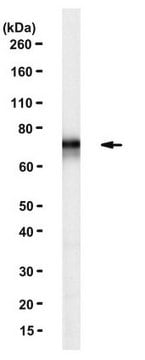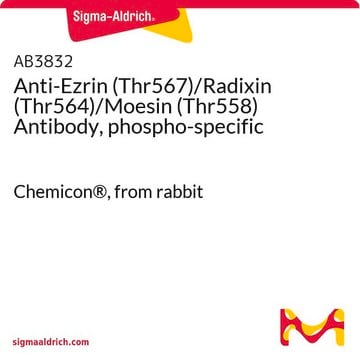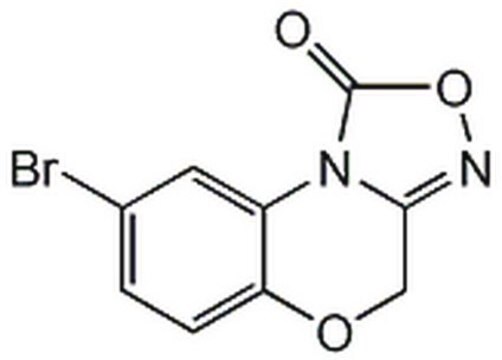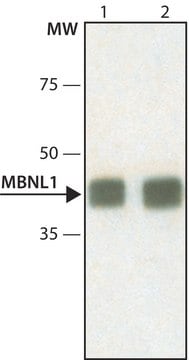WH0002332M1
Monoclonal Anti-FMR1 antibody produced in mouse
clone 2D4, purified immunoglobulin, buffered aqueous solution
Synonym(s):
Anti-FMRP, Anti-FRAXA, Anti-MGC87458, Anti-fragile X mental retardation 1
About This Item
Recommended Products
biological source
mouse
Quality Level
conjugate
unconjugated
antibody form
purified immunoglobulin
antibody product type
primary antibodies
clone
2D4, monoclonal
form
buffered aqueous solution
species reactivity
human
technique(s)
indirect ELISA: suitable
western blot: 1-5 μg/mL
isotype
IgG1κ
GenBank accession no.
UniProt accession no.
shipped in
dry ice
storage temp.
−20°C
target post-translational modification
unmodified
Gene Information
human ... FMR1(2332)
General description
Immunogen
Sequence
ATKDTFHKIKLDVPEDLRQMCAKEAAHKDFKKAVGAFSVTYDPENYQLVILSINEVTSKRAHMLIDMHFRSLRTKLSLIMRNEEASKQLESSRQLASRFH
Biochem/physiol Actions
Physical form
Legal Information
Disclaimer
Not finding the right product?
Try our Product Selector Tool.
recommended
Storage Class Code
10 - Combustible liquids
Flash Point(F)
Not applicable
Flash Point(C)
Not applicable
Personal Protective Equipment
Certificates of Analysis (COA)
Search for Certificates of Analysis (COA) by entering the products Lot/Batch Number. Lot and Batch Numbers can be found on a product’s label following the words ‘Lot’ or ‘Batch’.
Already Own This Product?
Find documentation for the products that you have recently purchased in the Document Library.
Our team of scientists has experience in all areas of research including Life Science, Material Science, Chemical Synthesis, Chromatography, Analytical and many others.
Contact Technical Service








